Ambulatory care describes any medical service performed in an outpatient setting or any service which eliminates the need for hospital admission. The rise of ambulatory care addresses patient concerns and convenience while freeing up resources in hospitals that struggle with overcrowding.
By offering healthcare without hospital stays, ambulatory care services reduce patient medical bills and allow patients greater flexibility when scheduling appointments. Depending on the services offered in their local area, patients may receive outpatient care at physician offices, urgent care clinics, specialty clinics, hospital outpatient departments, and ambulatory surgical centers (ASCs).
What Types of Ambulatory Care Settings Are There?
Ambulatory care services include a wide range of primarily non-emergency outpatient services. Patients access them through eight types of virtual and physical settings:
- Freestanding ERs are often attached to healthcare facilities that support in-patient admission.
- Mobile Ambulatory Care Services bring healthcare facilities to patients in remote, rural locations.
- Online Ambulatory Care Services allow patients to contact care providers through medical apps or online portals and track medical care.
- Primary Care Clinics may soon replace the traditional primary care physician office and include a collaborative team of healthcare providers that sometimes includes specialists.
- Retail Clinics offer ambulatory care services in big-box stores and drug stores.
- Specialty Care Centers offer pediatrics, rheumatology, and other highly specialized services outside of a hospital setting.
- Urgent Care Facilities typically include radiography, a lab, and facilities for minor surgery and may offer scheduled appointments in addition to walk-in treatment.
- Work-Based Ambulatory Care Clinics are on-site healthcare facilities at places of employment with over 1,500 employees, with the goal of maintaining a healthy, productive workforce.
Understanding the Role of Ambulatory Care
Ambulatory care benefits all stakeholders in the healthcare ecosystem. It plays a vital role as healthcare transitions to value-based care. ASCs have the ability to provide cost-effective, accessible, efficient, and patient-centered procedures while reducing the burden on hospitals and improving overall patient outcomes. Insurance companies prefer that surgeons take more cases at ASCs because the cost is lower for both patients and payers. The clinical outcome and quality of an outpatient procedure are not affected.
Ambulatory care settings also allow care providers to work at multiple locations, which makes it even more important that providers are credentialed properly and efficiently to deliver patient care when and where it is needed. IntelliCentrics’ digital technology can credential providers in a faction of the time that it takes the paper-based process to do, not only accelerating provider onboarding and revenue generation across healthcare facilities using the technology but also alleviating the administrative burdens that many ASCs are faced with, due to rising costs and staffing shortages.
We hope you enjoyed reading this article. At IntelliCentrics, we have helped over 10,000 facilities improve their operational efficiencies, grow their revenue, and improve their compliance. Our digital technology has been optimized over 20 years to deliver best in class vendor and medical credentialing, as well as payer enrollment. If you would like to learn more, please click on the button below and schedule 15 minutes with one of our team members.




